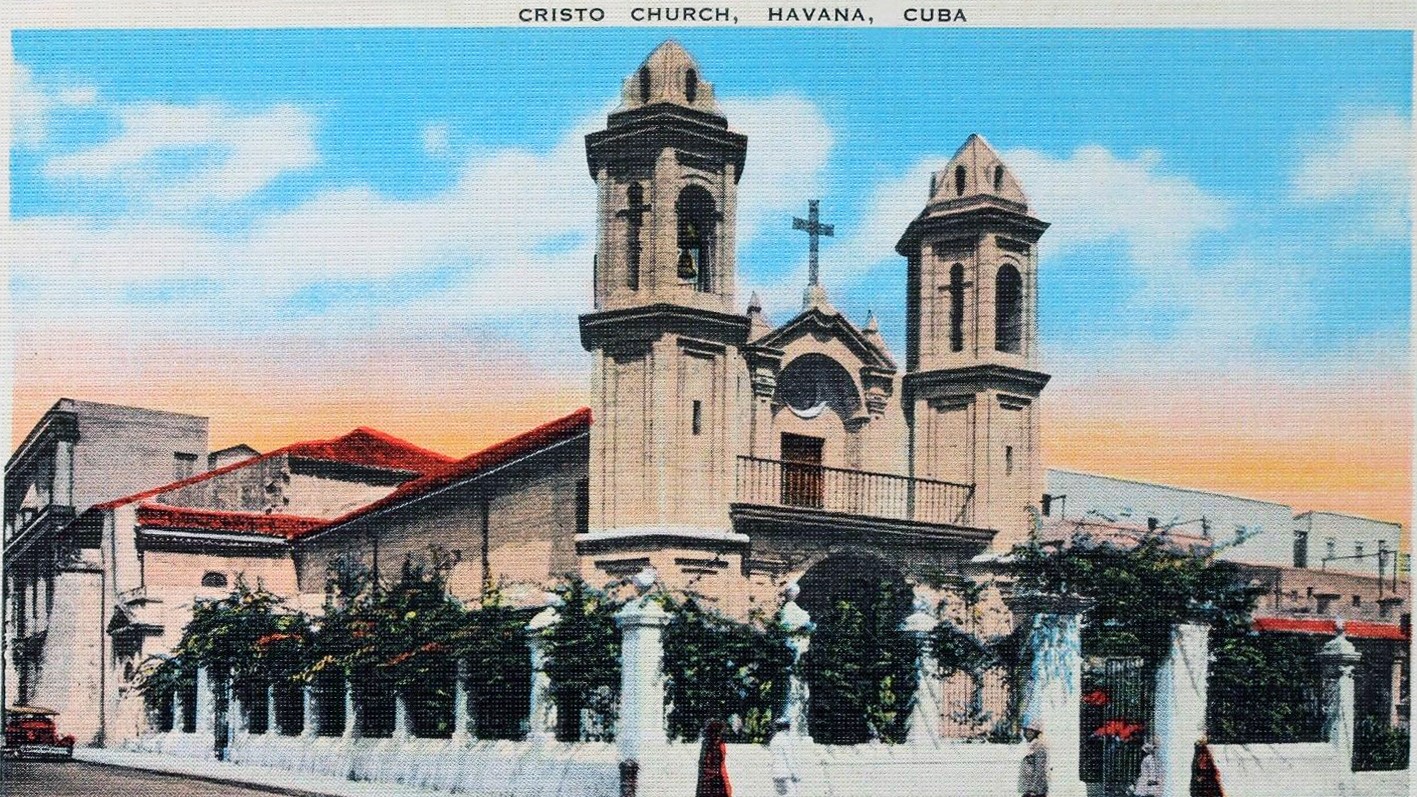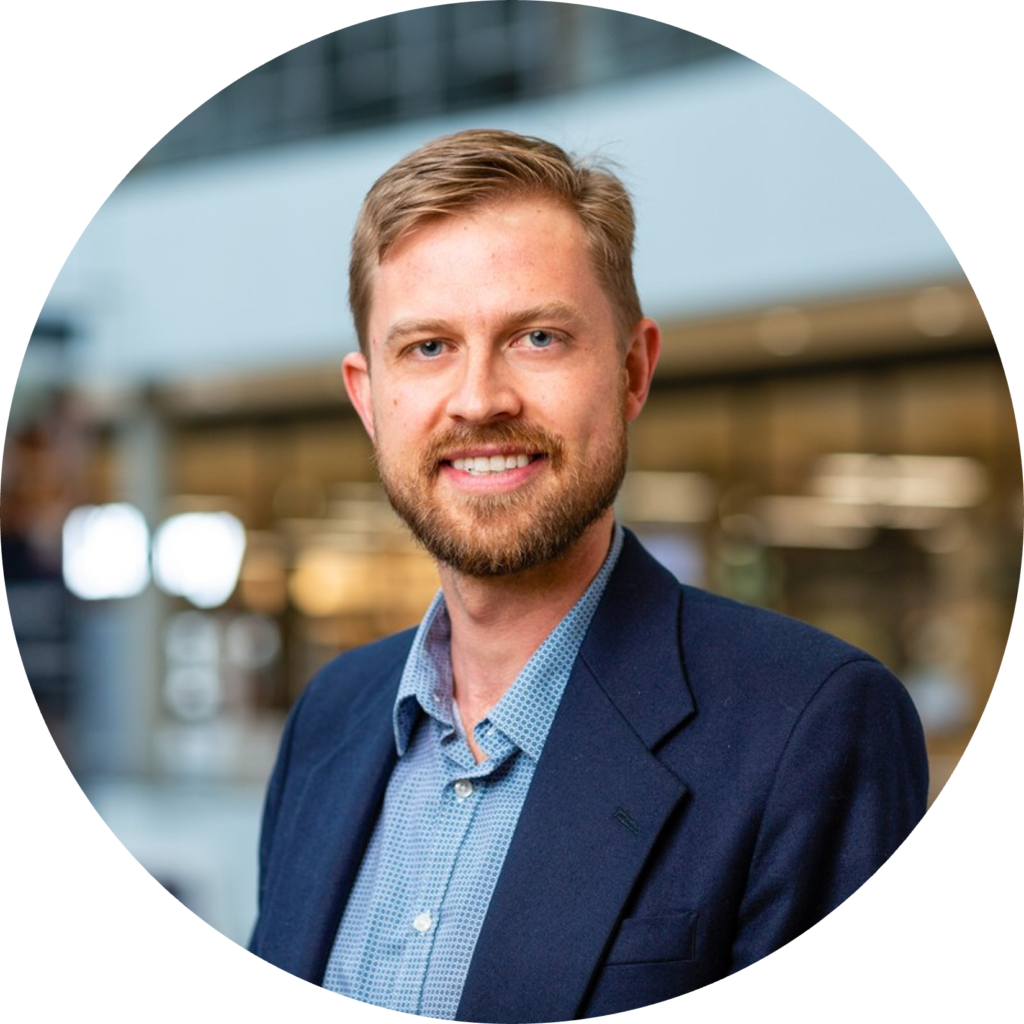
Politics and Religion in Cuba and Nicaragua
Dennis P. Petri
“Cristo Church, Havana, Cuba” by Roberts & Co., Havana (CC0).
The Regulation of Religion in Communist Cuba
Religious groups have been viewed with suspicion by the Cuban government for a long time, as they are seen as potential threats to the socialist state. This distrust has led to subtle forms of repression, such as surveillance and interference with church activities, which limit the ability of religious groups to freely practice their faith.
Despite the fact that restrictions appear to be less severe than in the decades following the Cuban Revolution, the government still restricts religious freedom by prohibiting the registration of any religious organization formed after 1959. The intricate bureaucratic procedures and hindrances in registering churches — particularly Protestant churches — have resulted in an increase of unregistered churches. These unregistered churches are frequently subjected to sanctions, closures, or fines, which adversely affect their right to legal recognition, assembly, association, equality, and justice. In addition, religious groups face persistent harassment and discrimination, and their activities are restrained in various ways, including via the confiscation of church property.
Currently, the Cuban government continues to control and restrict the activities of religious organizations, including worship, evangelism, and religious education.
The Catholic Church played a significant role in political upheavals of the 20th century, including in the Cuban Revolution of 1959. Because it was supportive of the revolutionary movement, the Church became a target of the government’s efforts to control all aspects of Cuban society, including religion. The Church had to operate within a heavily restricted space, with its activities and leadership monitored and controlled by the government. Despite being the largest religious organization in Cuba, the Catholic Church faces significant limitations on its activities and role in public life.
In 2018, when Miguel Díaz-Canel became the President of Cuba following nearly six decades of leadership by Fidel Castro and his brother Raúl, many experts predicted the continuation of the communist regime. Despite warnings that social unrest would increase due to severe economic conditions, including shortages of food and electricity, most analysts expected no significant change. Currently, the Cuban government continues to control and restrict the activities of religious organizations, including worship, evangelism, and religious education. Additionally, the government has placed limitations on the construction of new places of worship, making it challenging for religious groups to expand or establish themselves in new areas. The government maintains a monopoly on public education and all schools are required to teach a Marxist-Leninist ideology.
Moreover, the government strictly controls religious leaders and requires them to receive approval before conducting religious activities. The procedure to make such requests is quite arbitrary, and it will often depend on the mood of the corresponding official whether a particular request is approved or not. Often the decision is made based on an assessment of the threat this religious group poses to the stability of the regime. Religious leaders who speak out against the government or attempt to conduct unauthorized activities can face imprisonment, harassment, and other forms of persecution.
Nicaragua Following Cuba’s Footsteps Towards Repression of Religious Groups
Nicaragua returned to democracy in 1990 after a deadly civil war, but has slid back into authoritarianism in recent years since the Sandinistas returned to power in 2007. It has taken cues from Cuba’s political system to regulate religion. Following Cuba’s template, the government seeks the imposition of communist ideology in the country. In this process, all state and social institutions are forced to follow the party’s guidelines.
Much as in Cuba, the Catholic Church played a crucial role in toppling the Somoza regime in 1979 by undermining its legitimacy and denouncing its human rights violations and supported the subsequent Sandinista government. However, tensions between the Church and the government began to escalate in recent years, with the Church criticizing the government‘s human rights record and the government accusing the Church of backing counter-revolutionary activities. As of today, the government faces widespread accusations by human rights watchdogs including the Inter-American Commission on Human Rights of hostility towards the Catholic Church, with reports of harassment and intimidation of Church leaders as well as constraints on the Church’s capacity to operate freely.
While the constitution guarantees the right to the freedom of conscience, thought, and religion, it also stipulates that no one can evade laws or prevent others from exercising their rights and fulfilling their duties on religious grounds. This means that the national interest takes precedence over the right to religious freedom…
The Nicaraguan Constitution contains several provisions safeguarding freedom of conscience, thought, and religion, including Articles 14, 29, 49, 69, and 124. It explicitly declares that the state has no official religion, while recognizing the importance of Christian values, as well as socialist ideals to the nation. While the constitution guarantees the right to the freedom of conscience, thought, and religion, it also stipulates that no one can evade laws or prevent others from exercising their rights and fulfilling their duties on religious grounds. This means that the national interest takes precedence over the right to religious freedom as outlined in Article 18 of the Universal Declaration of Human Rights (UDHR). The current practice of the Sandinista government is to define any form of opposition, including public expression by religious leaders, as a threat to the national interest, which enables them to justify restrictions to fundamental freedoms.
Despite these constitutional protections, religious leaders in Nicaragua, particularly those in the Catholic clergy, have faced constant limitations on their legitimate exercise of freedom of expression based on their religious principles. This has resulted in restrictions on various dimensions of religious freedom. In recent years, the Church has become increasingly critical of abuses of power, human rights violations, and the lack of democratic guarantees in Nicaragua. As a result, the Ortega regime, now in its fifth term in power, has escalated threats and harassment against the Church, its religious leaders, and affiliated institutions or organizations. The regime’s goal is to establish a culture of fear and censorship, not only among religious leaders, but also among their followers. The violation of politically motivated religious freedom has become more severe over time.
The Ortega government’s policies limit religious freedom, including the confiscation of church property and harassment of religious leaders who criticize the government. The government passed a law in 2021, requiring non-governmental organizations — including religious groups — to register with the government or face fines and possible imprisonment, which has been widely criticized for stifling dissent and limiting freedom of expression. A 2017 law required all NGOs, including religious organizations, to register with the government and provide comprehensive financial reports, drawing criticism for giving the government excessive control over NGOs, including religious groups.
The Nicaraguan government has also repressed religious leaders and organizations that are viewed as a threat to the ruling party. The Observatory of Religious Freedom in Latin America documented that the Nicaraguan government “has harassed, persecuted, and even detained religious leaders and their congregations,” and has restricted religious groups from engaging in social and political activities. In one example of this hostility, the Ortega government expelled a group of Catholic bishops attempting to mediate a conflict between the government and opposition groups in 2018. Additionally, the government has been accused of employing violence and intimidation against religious groups that criticize the government, as when a group of Catholic priests was attacked by government supporters while they were attempting to provide assistance to protesters in 2018.
Religious Freedom in Cuba’s New Constitution
The new constitution of Cuba, approved in 2019, has raised concerns among religious groups and human rights advocates. While Article 8 affirms the state’s recognition and guarantee of religious freedom, it also declares that the state’s institutions are secular, and that no religious organization has legal capacity to engage in political activity. This wording has led some to interpret it as a limitation on religious groups’ ability to participate in politics.
Furthermore, Article 55 establishes that religious institutions have autonomy in their internal affairs and are governed by their own norms, but must exercise their religious freedom in accordance with the law. Despite this apparently protective language, some religious groups fear it leaves room for ambiguous government interpretation and interference.
Despite these concerns, some experts see the new constitution as progress for religious freedom in Cuba. According to the United States Commission on International Religious Freedom (USCIRF), the new constitution “acknowledges the importance of religious freedom” and removes a constitutional provision that previously made atheism the state’s official ideology. Nonetheless, the report notes that it remains to be seen how the government will put these changes into practice.
Regardless of the new constitution’s provisions, religious leaders who speak out against the government or advocate for human rights and democracy continue to face significant consequences, including harassment, imprisonment, and other forms of persecution. In July 2021, a series of unprecedented protests erupted against the ruling Communist Party, in line with earlier predictions. Although the regime responded with violence, the protests failed to alter the political status quo, at least not immediately.
Final Remarks
The relationship between religious groups and the legal systems, public policies, and political processes in Cuba and Nicaragua is complex and ongoing. Both countries are confronted with important challenges in the face of political repression and the suspicion of religious organizations.
Despite the challenges, religious leaders and activists in Cuba and Nicaragua are the only actors that are sufficiently organized to act as a political opposition to the government, and they continue to work towards promoting human rights and democracy. They have established small-scale humanitarian projects and social initiatives, often carried out in collaboration with international organizations and other religious groups.
Religious groups play a crucial role in promoting social and economic development, providing education and healthcare, and addressing issues such as poverty and inequality. However, the limitations on religious activities in Cuba and Nicaragua have had a significant impact on human development in both countries. The restrictions on religious activities make it challenging for religious groups to carry out these activities effectively.
Furthermore, religious actors in Cuba and Nicaragua face significant obstacles in promoting rights and democracy in their countries. While religious groups have played an essential role in various countries worldwide, they face significant obstacles in carrying out these activities in Cuba and Nicaragua.
The drastic sanitary measures that were taken to combat the coronavirus in 2020 and 2021 also affected religious freedom. A study by the Observatory of Religious Freedom in Latin America found that the government of Cuba in particular took advantage of the situation to increase its repression of religious groups.
To improve religious freedom and promote human rights in these countries, it is crucial for the international community to pay attention to the situation and support the efforts of religious leaders and activists. This can involve providing finances and other resources to support humanitarian and social initiatives, and extending diplomacy to those working towards promoting human rights and democracy. Additionally, it is crucial for governments and international organizations to raise awareness about the situation in these countries and pressure their governments to protect human rights. ♦

Dennis P. Petri, PhD is the International Director of the International Institute for Religious Freedom and Founder and scholar-at-large of the Observatory of Religious Freedom in Latin America. He is a Professor in International Relations and Head of the Chair of Humanities at the Latin American University of Science and Technology and the Latin American Faculty of Social Sciences. He is the author of The Specific Vulnerability of Religious Minorities, a book on undetected religious freedom challenges in Latin America.
Recommended Citation
Petri, Dennis P. “Politics and Religion in Cuba and Nicaragua.” Canopy Forum, April 29, 2023. https://canopyforum.org/2023/04/29/politics-and-religion-in-cuba-and-nicaragua/

